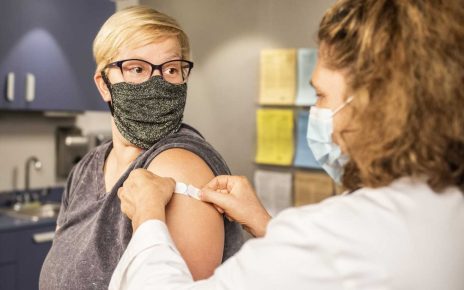
Plastic surgeons play an key as consultants in complex reconstructive surgery cases—providing a major contribution to the bottom line for academic medical centers, concludes an analysis in the April issue of Plastic and Reconstructive Surgery, the official medical journal of the American Society of Plastic Surgeons (ASPS).
The study documents the high but hidden value of plastic and reconstructive surgeons when called in to assist with challenging operations led by neurosurgeons, orthopedic surgeons, and other specialists, according to the study by Ketan M. Patel, MD, and colleagues of Keck School of Medicine of the University of Southern California, Los Angeles.
“Plastic surgeons acting as consultants add financial value that may not be captured by hospital accounting systems, and therefore may be missed at the leadership level,” Dr. Patel comments, “Although plastic surgeons are valued by our fellow surgeons, it’s equally important to emphasize our value to the whole health system.”
Plastic surgeons are ‘financially invaluable’ to healthcare systems
In addition to caring for their own patients, plastic surgeons at university medical centers are often called in by surgeons in other specialties to assist in difficult cases—especially those involving complex reconstructions or difficult complications. However, because the reconstructive surgeon is not the primary attending physician in these cases, in most hospital accounting systems, the profit margins from these cases are not appropriately assigned to the plastic and reconstructive surgery department. Dr. Patel and colleagues designed a study to estimate the value added by plastic surgeons as consultants in complex cases.
The researchers analyzed financial records for surgeries performed at their medical center from 2015 to 2018, focusing on 554 operations where plastic and reconstructive surgeons were called in to assist. The types of procedures in which plastic surgeons provided consultation were analyzed. Contribution margins (net revenues) from these procedures were compared with those of nearly 19,000 surgeries without plastic surgery consultation.
The neurosurgery department had the highest rate of plastic surgery consultations, 31%, followed by orthopedic surgery at 25%. Consultation rates for other departments were 21% for general surgery, 13% for cardiothoracic surgery, and 6% for urologic surgery.
Surgeries where plastic surgeons acted as consultants had higher contribution margins: about 80% higher than cases without plastic surgery involvement. Overall net revenue was about $42,000 for cases involving plastic surgeons, compared to $24,000 for other cases.
The differences were even greater for cardiothoracic surgeries, $122,500 versus $47,000; and neurosurgery procedures, $51,000 versus $26,000. For departments with lower consultation rates, net revenues were no higher when plastic surgeons were involved.
The researchers used a case mix index as an indicator of the complexity of each procedure. The results showed that surgeries involving plastic and reconstructive surgeons were significantly more complex, particularly for neurosurgery procedures. Common reasons for plastic surgery consultation included closure of scalp or back defects after neurosurgery procedures, flap coverage of orthopedic hardware, and reconstruction of the abdominal or chest wall.
Overall, plastic surgery reconstruction was considered “integral to the completion of the surgery” in 78% of cases. In these cases, the total profit margin for the hospital exceeded $18 million over three years. “These are surgeries that the hospital would not have been able to provide if plastic surgeons weren’t present and able to help,” says Dr. Patel. “The availability of plastic surgeons expands the overall complexity of patients the hospital can safely manage.”
Source: Read Full Article



